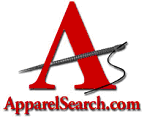|
Free2Work provides consumers with information on how products relate to modern-day human rights issues. Through the site you can learn how your favorite brands are working to address forced and child labor. In addition, you can access in-depth information about industry issues through their industry pages, news feeds, and their blog posts. Here is a brief example of an introduction to one of their apparel industry reports:
View the full example of their research by reading the 2012 Apparel Industry Trends Report by Free2Trade. The global slave trade is complex, and product supply chains remain opaque, making it difficult for even the most informed consumers to know how their purchases are connected to labor abuses. Many fashion brands now work with a wide range of initiatives such as monitoring and certification programs to attempt to assure consumers that their products do not violate worker rights. The plethora of approaches is potentially confusing for busy consumers who seek an answer to the simple question, what is the story behind my products? Free2Work is trying to make the issues easier for consumers to find an understand information relevant to this subject. There is a tale behind each barcode. Most products travel through various parts of the world and through many hands before they reach the final consumer. The goal at Free2Work is to shed light on this process. They aim to empower consumers with information about the likelihood that products are made with forced or child labor. Free2Work conducts extensive research before assigning grades on a scale of “A” to “F” to each brand. They look at company efforts in four main categories: policies, monitoring, transparency, and worker rights. Free2Work is continually engaged in dialogue with clothing companies and companies from other industries about their supply chain practices. Organizations Behind Free2Work: Free2Work is a project created by Not For Sale and supported by the International Labor Rights Forum. Not For Sale equips and mobilizes smart activists to deploy innovative solutions to slavery in their own backyards and across the globe. NFSC has developed an international network of people dedicated to ending slavery and forced labor. International Labor Rights Forum, founded in 1985, promotes just and humane treatment for workers worldwide. ILRF connects policy makers and activists to workers' struggles around the world, promoting better trade policy and legal protections against child and forced labor, discrimination of all kinds, and infringements on workers' right to organize and bargain collectively. You can provide feedback by email to feedback@free2work.org. Learn more about apparel industry human rights issues on the Apparel Search guide. You may also have interest in learning about the Fair Labor Association. |
Apparel Search
Add Your Company
Contact Us
About Us
Advertise
News Letter
Legal
Help
Copyright © 1999-2024 Apparel Search Company. All Rights Reserved.
